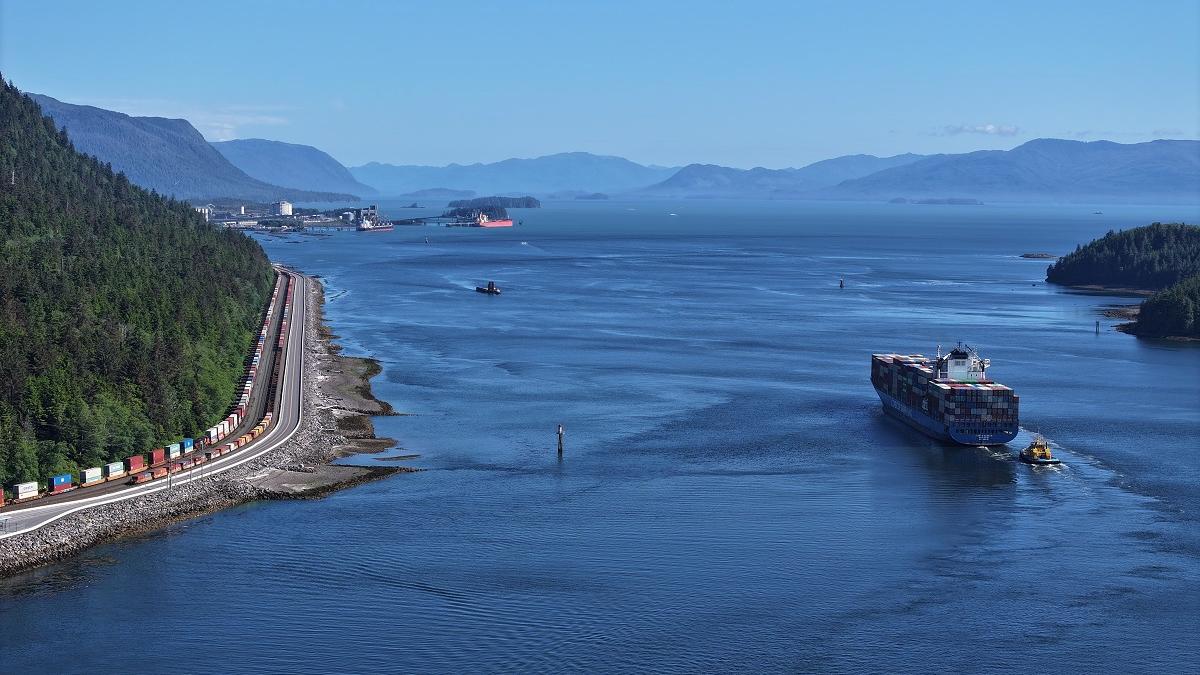In 2019, Martha Hall Findlay, then-CEO of the Canada West Foundation, penned a strongly worded op-ed in the Globe and Mail calling the federal ban of oil tankers on B.C.’s northern coast “un-Canadian.”
Six years later, her opinion hasn’t changed.
“It was bad legislation and the government should get rid of it,” said Hall Findlay, now director of the University of Calgary’s School of Public Policy.
The moratorium, known as Bill C-48, banned vessels carrying more than 12,500 tonnes of oil from accessing northern B.C. ports.
Targeting products from one sector in one area does little to achieve the goal of overall improved marine transport safety, she said.
“There are risks associated with any kind of transportation with any goods, and not all of them are with oil tankers. All that singling out one part of one coast did was prevent more oil and gas from being produced that could be shipped off that coast,” she said.
Hall Findlay is a former Liberal MP who served as Suncor Energy’s chief sustainability officer before taking on her role at the University of Calgary.
She sees an opportunity to remove the tanker moratorium in light of changing attitudes about resource development across Canada and a new federal government that has publicly committed to delivering nation-building energy projects.
“There’s a greater recognition in large portions of the public across the country, not just Alberta and Saskatchewan, that Canada is too dependent on the United States as the only customer for our energy products,” she said.
“There are better alternatives to C-48, such as setting aside what are called Particularly Sensitive Sea Areas, which have been established in areas such as the Great Barrier Reef and the Galapagos Islands.”
The Business Council of British Columbia, which represents more than 200 companies, post-secondary institutions and industry associations, echoes Hall Findlay’s call for the tanker ban to be repealed.
“Comparable shipments face no such restrictions on the East Coast,” said Denise Mullen, the council’s director of environment, sustainability and Indigenous relations.
“This unfair treatment reinforces Canada’s over-reliance on the U.S. market, where Canadian oil is sold at a discount, by restricting access to Asia-Pacific markets.
“This results in billions in lost government revenues and reduced private investment at a time when our economy can least afford it.”
The ban on tanker traffic specifically in northern B.C. doesn’t make sense given Canada already has strong marine safety regulations in place, Mullen said.
Notably, completion of the Trans Mountain Pipeline expansion in 2024 also doubled marine spill response capacity on Canada’s West Coast. A $170 million investment added new equipment, personnel and response bases in the Salish Sea.
“The [C-48] moratorium adds little real protection while sending a damaging message to global investors,” she said.
“This undermines the confidence needed for long-term investment in critical trade-enabling infrastructure.”
Indigenous Resource Network executive director John Desjarlais senses there’s an openness to revisiting the issue for Indigenous communities.
“Sentiment has changed and evolved in the past six years,” he said.
“There are still concerns and trust that needs to be built. But there’s also a recognition that in addition to environmental impacts, [there are] consequences of not doing it in terms of an economic impact as well as the cascading socio-economic impacts.”
The ban effectively killed the proposed $16-billion Eagle Spirit project, an Indigenous-led pipeline that would have shipped oil from northern Alberta to a tidewater export terminal at Prince Rupert, B.C.
“When you have Indigenous participants who want to advance these projects, the moratorium needs to be revisited,” Desjarlais said.
He notes that in the six years since the tanker ban went into effect, there are growing partnerships between B.C. First Nations and the energy industry, including the Haisla Nation’s Cedar LNG project and the Nisga’a Nation’s Ksi Lisims LNG project.
This has deepened the trust that projects can mitigate risks while providing economic reconciliation and benefits to communities, Dejarlais said.
“Industry has come leaps and bounds in terms of working with First Nations,” he said.
“They are treating the rights of the communities they work with appropriately in terms of project risk and returns.”
Hall Findlay is cautiously optimistic that the tanker ban will be replaced by more appropriate legislation.
“I’m hoping that we see the revival of a federal government that brings pragmatism to governing the country,” she said.
“Repealing C-48 would be a sign of that happening.”
The unaltered reproduction of this content is free of charge with attribution to the Canadian Energy Centre.
